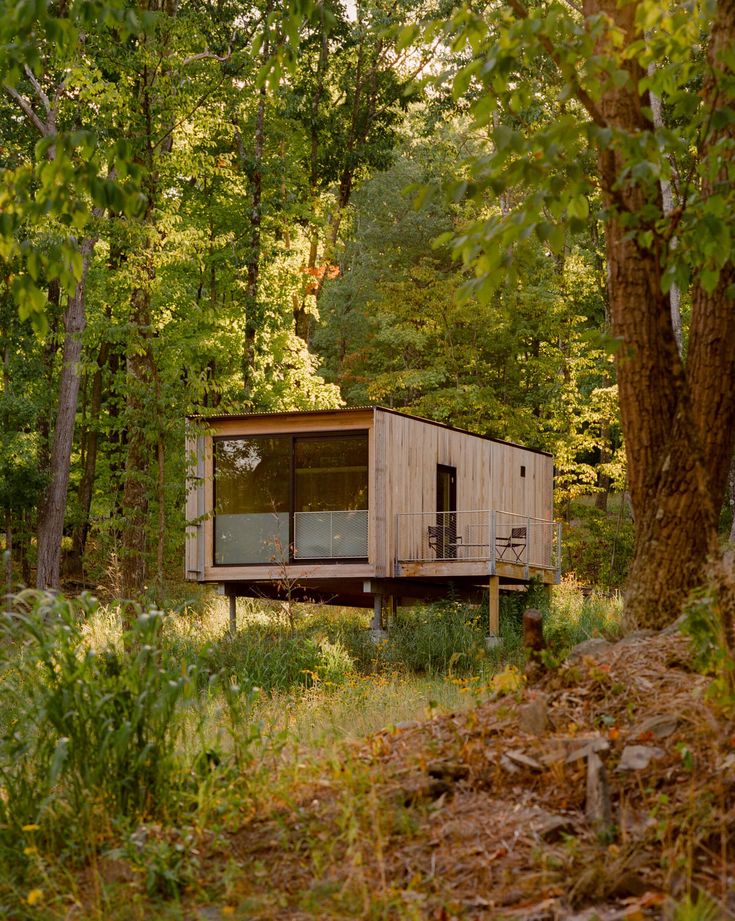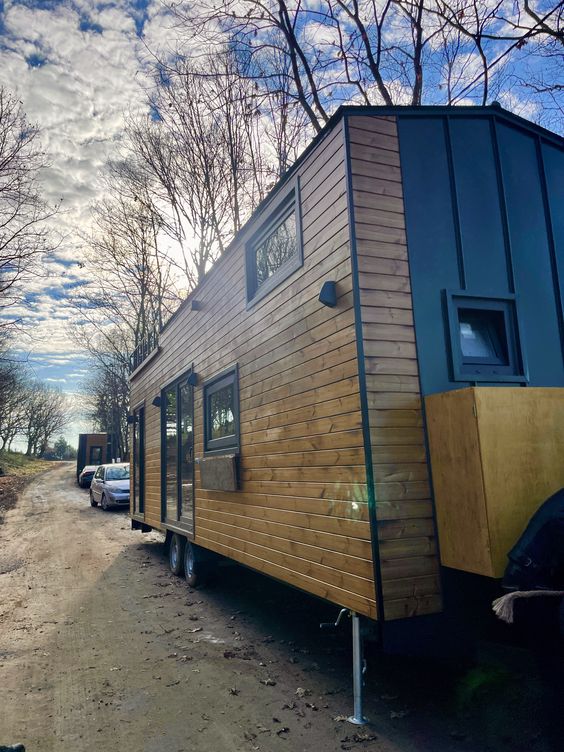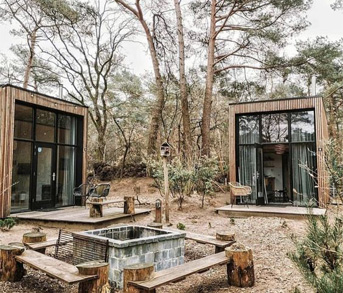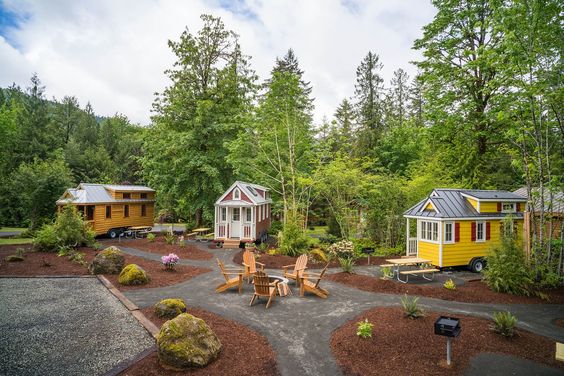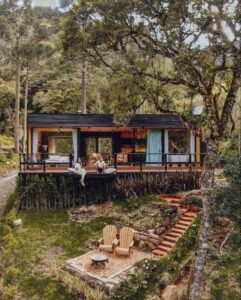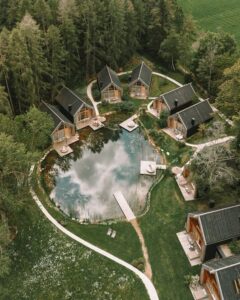Tiny Spaces
Where Can Tiny House Owners Live?
Hello everyone from our new haosBLOG article! Today we are going to talk about one of your most curious topics. We would like to provide you with some enjoyable and important information about where to live for those who dream of a tiny house. Maybe many of us want to get away from the chaos of our lives and adopt a simple lifestyle, but we don't know where to start this simple life.
At this point, we are waiting for the rest of the article for information on which regions tiny house owners can easily live in and what they should pay attention to when deciding, and for those who do not like reading but enjoy visual content, we share content on youtube.com/haosdesign channel about everything you wonder. Now let's continue with our first topic,
Where can Tiny House owners build their living space?
We will talk about a few different options for those who are considering a mobile or stationary life. Let us remind you of an important issue that we have underlined many times, if your Tiny House is not on wheels (with license plate, license and document), it can only be located on a zoned land with a building license. Detailed information for a tiny house that requires zoning;
https://www.gokhanbilgin.av.tr/ruhsat-ve-iskan/tiny-house-imar-ruhsat-izin-karavan-kamp
you can reach from this link. First of all, one of the best places to live is in the countryside far from the city. Rural areas are a paradise for those who dream of a small house. Remote villages, chalets and settlements intertwined with nature can offer small house owners a peaceful life. Here it is possible to enjoy nature and transition to a sustainable lifestyle.
If you don't want to be in a fixed place, consider mobile living. Portable tiny house models on wheels, such as caravans, give you the freedom to explore a new landscape at any time. Wandering among natural beauty and living with ever-changing landscapes can be an unforgettable experience for tiny house owners. You can be as free as a bird while living a simple and wonderful life in your tiny house. How exciting is that?
Another option is ecological villages and communities. Small homeowners who embrace sustainable living often come together in ecological villages or similar communities. Here, by sharing common spaces and living in harmony with nature, you can both be part of a social environment and maintain a sustainable lifestyle. Although this lifestyle is not yet widespread in Turkey, it will become very important. We will focus more on this issue in the future. Because it offers you a paradise on earth and many comforts that will beautify your future. Also, if you want to get in touch with nature, large nature parks and campgrounds can be a great option. Here you can set up your little house, enjoy moments with your friends around the campfire and listen to the sounds of nature.
Let's come to our second topic, you may feel a little bored while reading, but don't worry, Haos Design has the solution to all your problems. What problems do legal permits, finding land and infrastructure requirements require Tiny House owners to solve?
One of the main challenges faced by Tiny House owners is ensuring compliance with local regulations and legislation on the construction of buildings. In many regions, dwellings must meet certain standards and obtain the relevant permits. Since Tiny Houses often do not meet traditional housing standards, owners may have to make additional efforts to obtain these permits. Tiny House owners may face various challenges in finding a suitable piece of land on which to place their tiny house. In some areas, tiny houses may not be allowed or may be subject to certain conditions. In addition, land prices can be an additional challenge. Finding a suitable location may require owners to be careful about both budget and compliance with local regulations.
Finally, Tiny House owners should consider infrastructure requirements before placing their dwellings in a particular area. Providing basic infrastructure services such as electricity, water and wastewater systems is important for owners to live a comfortable and sustainable life. Access to these services may differ depending on the land available and owners should therefore communicate with the relevant authorities and make arrangements to meet these requirements. As Tiny House owners often live in communities, it is also important to adapt to neighborly relations and community norms.
Unlike traditional housing, tiny houses are usually located in more densely planned communities. Therefore, it is important for owners to pay special attention to neighborhood relations and respect community rules. Laws and rules apply to all aspects of society and life, as well as to the transition to tiny house living and impose certain limitations. As we mentioned above, don't be intimidated by these limitations, even if you don't buy a tiny house from Haos Design, you can buy consultancy services from us for all these processes and entrust the burden of the work to us.
Let's talk about another topic that can offer an alternative solution to all of these problems,
What are the popularity and advantages of Tiny House communities and camps?
Tiny House communities and camps are popular among individuals who embrace sustainable living. Because tiny houses are often built with low energy consumption and eco-friendly materials, these communities support a lifestyle in harmony with nature. Because they are built on a smaller footprint, Tiny Houses require less natural resources and energy consumption than traditional housing. This allows individuals in communities to have a smaller environmental footprint. In addition, they often reflect a more economical lifestyle, giving their owners financial freedom. Tiny House communities bring together individuals who share these economic advantages and foster a culture of solidarity.
Tiny House communities bring together people who share similar lifestyles, creating a strong sense of solidarity and community. Neighborly relations are close and a culture of helping others is widespread. Communities offer the opportunity to share some resources. Resources such as communal spaces, gardens and energy systems can be shared among community members and made easier to maintain. Tiny House communities often host a variety of social events. Events organized in shared community spaces allow owners to meet and interact with each other. Tiny House communities allow new owners and potential owners to exchange information and share experiences. This means learning from the experiences of others and finding support through strong bonds within the community.
Tiny House communities and camps are becoming increasingly popular among individuals who embrace a sustainable lifestyle, seek a sense of community and prefer a minimalist life. These communities allow people with shared values to come together and form strong social bonds.
If you want to get involved in this future trend and transform your lifestyle in a sustainable way, contact us! Stay tuned to our weekly haosBLOG content and social media accounts!


